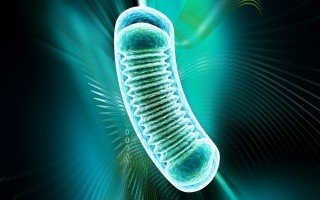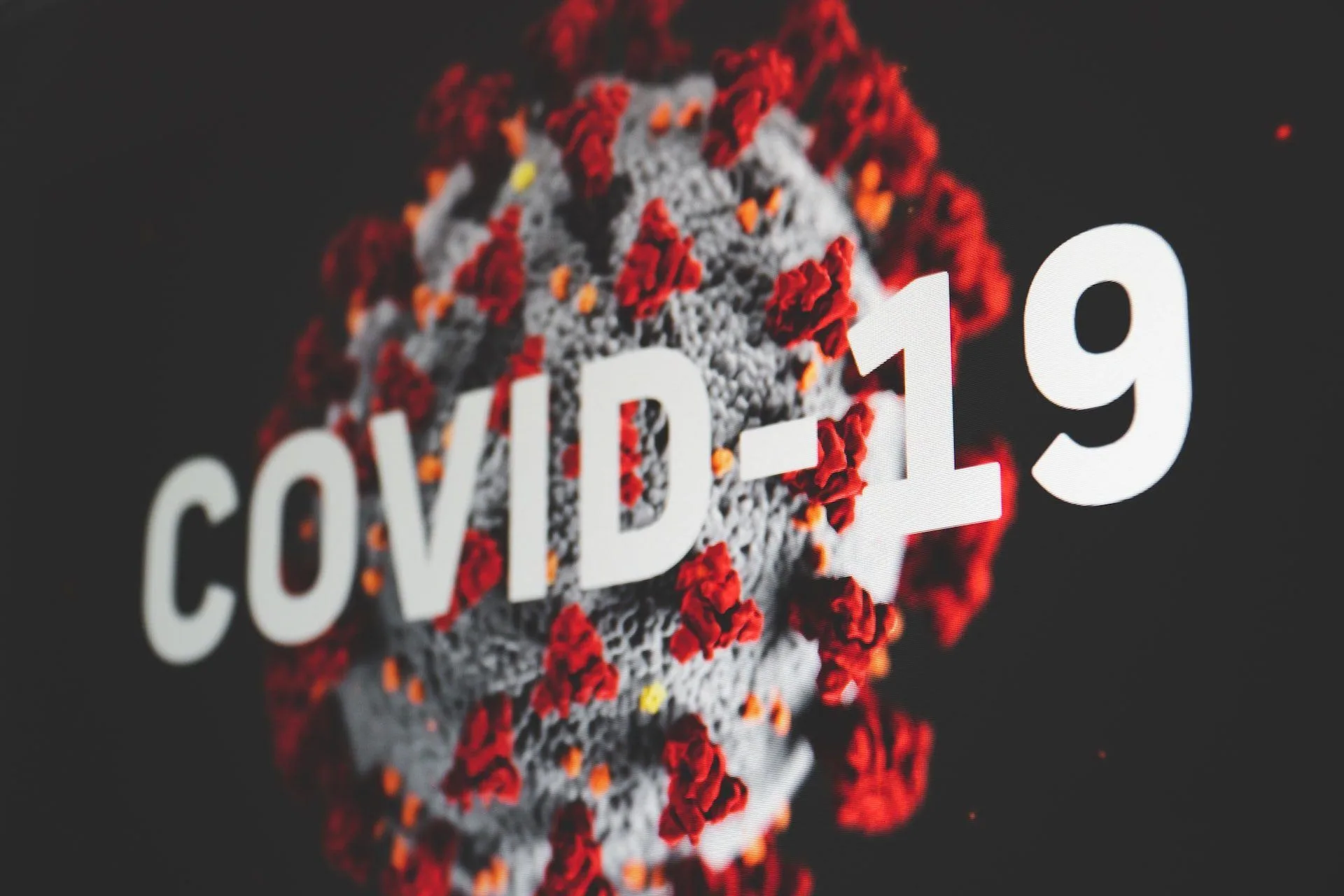Over the last few years of the COVID pandemic, there has been an increasing need to define the emerging condition following COVID-19 infection. Currently it’s called “long COVID.” The World Health Organization (WHO) also refers to it as “long-haul COVID”, or “post-COVID-19 condition. By Dr. Craige Golding.
What is Long COVID?
The initial definition of long COVID was “have had COVID-19 or suspected COVID-19, and have experienced or continue to experience symptoms for a duration of at least eight weeks”.
Building on the WHO definition, a publicly-led long COVID definition is as follows:
Long COVID occurs in individuals with a history of probable or confirmed SARS-COV2 infection, with symptoms that last for at least two months, including a negative test, where symptoms can’t be explained by an alternative diagnosis.
Common physiological symptoms include fatigue, shortness of breath, cognitive dysfunction or “brain fog”, as well as joint pain, muscle aches, hearing issues, eyesight problems, headaches, loss of smell and taste, and organ damage, including damage to the gut, kidneys, heart, and lungs.
Long COVID also has a significant mental-health impact, with psychological symptoms including fear, stress, anxiety, and depression. Both physiological and psychological symptoms generally have an impact on everyday functioning.
Symptoms may be a new onset following initial recovery from an acute COVID-19 episode or persist from the initial illness. Symptoms may also fluctuate or relapse over time. Sufferers of long COVID may have very different experiences.
What causes long COVID?
It’s probable that many factors are responsible for the symptoms associated with long COVID. Patients should be approached individually and on a case-by-case basis.
Some factors involved in the cause of long COVID include:
-
Lung-function damage
Complications following, especially, pneumonia is not uncommon. Following viral pneumonia, there are risks for psychological and physical complications of the illness itself, and, in addition, treatment-related lung damage and organ injuries may be present. Abnormal X-ray findings of the lung fields consistent with fibrotic lung disease may be found. Although the resolution of lung pathology may be possible, lung abnormalities can be long-lasting and impair lung function for a significant period of time.
-
 Post-viral fatigue
Post-viral fatigue
This is associated with the onset of chronic fatigue syndrome and myalgic encephalomyelitis, symptoms similar to long COVID. Possible explanations include increased inflammatory cytokines, neuro-inflammation, and potentially dormant viruses following infection. Mitochondrial dysfunction is also a valid hypothesis for fatigue suffered during long COVID.
-
Inflammation
Cytokines that are pro-inflammatory may persist following a viral infection. This may indicate that the virus has not been completely eradicated. It is also possible that disturbed inflammation pathways persist post-infection.
Chronic inflammation may increase oxidative damage as side-effects, such as pain, swelling, and loss of function, which can result in further tissue damage and symptoms worsening.
-
Neuro-inflammation
Cognitive issues such as depression, anxiety, brain fog, and non-restorative sleep are also frequently present. Post-mortem examinations have detected the virus in the hypothalamus, confirming the crossing of the blood-brain barrier by the virus, involving disturbance of lymph drainage from the microglia of the brain that should rid the brain of the virus and viral particles.
The loss of smell may be explained in infected patients by the fact that lymphatic drainage of the brain is via the perivascular spaces along the olfactory nerve (cranial nerve for smell) into the nasal mucosa.
Malfunctions of lymphatic or glymphatic drainage of the brain can lead to a build-up of inflammatory cytokines, including interferon and Il-7. This can result in fatigue symptoms and can affect the health of the blood-brain barrier, allowing other molecules to pass into the brain, and causing further inflammation. Immune-system support is of paramount importance to eradicate dormant viruses and increase resistance to future infections.
-
Mitochondrial dysfunction
This is certainly at play in long COVID and can be exacerbated by chronic inflammation. Oxidative damage also worsens mitochondrial function. The end result is an increased reactive oxygen species (ROS). These ROSs stimulate further inflammation, which creates even further dysfunction of the mitochondria (energy-producing organelles of the cell).
According to Amanda Williams and the Cytoplan editorial team, interventions could include:
Repair the damage
- Antioxidants, such as vitamin C and NAC (N-acetyl-cysteine)
- Epithelial tissue regeneration with nutrients such as vitamins A and D, and zinc
- Omega-3 fatty acids and B vitamins, such as B12 and folate
Reduce inflammation
- Curcumin reduces COX-2 expression, thereby reducing inflammatory prostaglandins. Liposomal curcumin crosses the blood-brain barrier and can stop neuroinflammation.
- Quercetin inhibits the NRP-3 inflammasome associated with inflammation in coronavirus.
- The gastrointestinal tract integrity is very important to consider. When there is increased permeability of the digestive system, larger molecules can pass through the gut lining and cause inflammation. “Leaky gut” leads to “leaky blood-brain barrier”, or increased permeability of the blood-brain barrier in medical terms, attenuating neuroinflammation. Thus live bacteria, which ferment fiber to produce short-chain fatty acids such as butyrate, should be considered to heal the gut, as well as vitamins A and D, lactoferrin, and glutamine.
Other nutrients to be considered include:
- Vitamin C supports immunity by stimulating neutrophils and increasing lymphocyte production. Vitamin C also has antioxidant and antihistamine properties.
- Zinc improves cellular-mediated immunity by increasing T-lymphocytes, and regulates white blood cell function.
- Vitamin D is important for healthy immune function.
- Beta-glucans, which are found in the cell walls of fungi, yeasts, seaweeds, and prime the immune system against infections. They also activate macrophages.
- Selenium, which improves both cellular and humoral immunity. Antibody formation and the functions of helper T cells, cytotoxic T cells, and natural killer cells are all supported by selenium.
- Vitamin K may assist in preventing lung damage and thromboembolism in COVID cases. Pneumonia-induced depletion of vitamin K may lead to matrix protein and protein S decreases, which can exacerbate lung damage and coagulopathy (blood-clotting risk).
A damaged mitochondria
As mitochondria are the energy-producing organelles of the cell, damaged mitochondria play a big role in the chronic-fatigue symptoms associated with long COVID. It is well known that severe cases of COVID-19 infection result in a cytokine storm, lead to excessive inflammation. A consequence of this is iron dysregulation, leading to high ferritin levels (high levels of circulating iron in the blood).
High iron levels cause oxidative stress and an increase in reactive oxygen species. This results in damage to the mitochondrial membranes, which leads to damaged mitochondrial function, fatigue, and autophagy. It’s believed that damage to platelet mitochondria may increase blood-clotting risk and thrombus formation. Thrombies in the lungs of severe COVID-19 infection may exacerbate the chronic lung damage that may be seen in some patients.
 Inflammatory cytokines, such as tumor necrosis factor and interferon-gamma, increase oxidation of the mitochondria by increasing calcium-dependent mitochondrial reactive oxygen species. Genes that induce mitochondrial reactive oxygen species may also play a role.
Inflammatory cytokines, such as tumor necrosis factor and interferon-gamma, increase oxidation of the mitochondria by increasing calcium-dependent mitochondrial reactive oxygen species. Genes that induce mitochondrial reactive oxygen species may also play a role.
The consequences of mitochondrial damage include:
- Diminished mitochondrial oxygen use
- Lipid peroxidation
- Endothelial dysfunction
- Disrupted blood-glucose signaling
- Fatigue
- Cardiovascular issues
- Raised cardiolipin antibodies, to support mitochondrial membranes, may cause further mitochondrial dysfunction.
Supporting mitochondrial function
There are many mitochondrial nutrients that may support mitochondrial function. In a recently written article by Amanda Williams and the Cytoplan editorial team, she lists some of the most important nutrients for mitochondrial function:
- Benfotiamine (B1) – cofactor in the essential step which converts pyruvate to acetyl CoA
- Riboflavin (b2) – accepts electrons and donates electrons to the electron transport chain, producing ATP (energy)
- Nicotinamide riboside (B3) – also known as NADH, also donates and accepts electrons in the electron transport chain, increasing ATP (energy)
- Pantothenic acid (B5) – carrier of coenzyme A, important for AcetylCoA and energy production
- Coq10 (ubiquinol) – carrier in complex 2 of the electron transport chain, with antioxidant activity
- Alpha-lipoic acid – coenzyme of pyruvate dehydrogenase and alpha-ketoglutarate, enzymes that break down fat and carbohydrates in the mitochondria
- Magnesium – binds to ATP, making energy more easily available
Other nutrients important for energy production and maintaining mitochondrial function include:
- L-carnitine – transports fatty acids into the mitochondria, to be converted to energy
- Omega-3 fatty acids – can be incorporated into the mitochondrial membranes, which assist fluidity of the membranes
- Antioxidant defenses – glutathione, NAC, alpha lipoic acid, selenium, vitamin C
D-ribose is useful, as it supports ATP production by encouraging rephosphorylation, especially in the heart muscle. It can be successfully used in chronically fatigued patients and can improve exercise tolerance.
Recommendations for long-haul COVID-19
A consensus protocol based on collaboration led by Dr. Mobeen Syed, Dr. Tina Peers, and the front-line COVID-19 critical-care alliance has proposed recommendations for long-haul COVID-19 syndrome.
These proposals include:
First-line therapies
- Prednisone
- Ivermectin
- Low-dose naltrexone
- Omega-3
- Vitamin D
Second-line therapies
- Fluvoxamine
- Atorvastatin
Third-line therapies
- Maraviroc – if 8 weeks have elapsed and significant symptoms persist, this drug can be considered.
Optional adjunctive therapies
- Curcumin
- Nigella sativa
- Vitamin c
- Melatonin
- Kefir, probiotics
- Luteolin
- H1 receptor blockers: loratadine, cetirizine or fexofenadine
- H2 receptor blockers: famotidine, nizatidine
- Montelukast
- Anti-androgen therapy: spironolactone and dutasteride
Hyperbaric oxygen therapy
In a recent newspaper publication, an article written by Eleanor Lawson refers to firefighters with long COVID benefits from hyperbaric oxygen therapy. They were given access to hyperbaric oxygen therapy at the Midlands diving chamber, visiting the facility for 90-minute sessions once a day for three weeks. Many long COVID sufferers reported resolution of symptoms and improvement in cognitive function.
MAIN IMAGE CREDIT: Photo by Martin Sanchez on Unsplash
For further reading on publications related to long COVID:
-
https://www.hopkinsmedicine.org/health/conditions-and-diseases/coronavirus/COVID-long-haulers-long-term-effects-of-COVID19
-
https://www.nicd.ac.za/diseases-a-z-index/disease-index-COVID-19/long-COVID/
-
https://www.bhf.org.uk/informationsupport/heart-matters-magazine/news/coronavirus-and-your-health/long-COVID
-
https://www.scientificamerican.com/article/the-problem-of-long-haul-COVID/
-
https://www.ncbi.nlm.nih.gov/pmc/articles/PMC8606968/
-
https://www.webmd.com/lung/news/20220425/study-shows-long-COVID-affects-women-more-than-men
-
https://www.cidrap.umn.edu/news-perspective/2022/04/european-studies-shed-light-long-COVID-risk-and-recovery
-
https://www.healthrising.org/blog/2022/04/09/niacin-mitochondria-chronic-fatigue-fibromyalgia-long-COVID/?fbclid=IwAR1nM5uoUGdsLUA2mK-aLfE96CaSyweiGjpmrWK_N8KRJZ0NyC4mZj6nMKw
Who is the author?
Dr. Craige Golding is a specialist physician in anti-aging medicine. According to Dr. Golding, anti-aging medicine is really about the prevention, early detection, and reversal of the chronic diseases . These become more common with age, and constitute nearly 90% of the illnesses doctors treat on an ongoing basis.
Dr. Golding qualified as a specialist physician in 1999. He quickly found that much of his time he was treating symptoms of conditions like diabetes, cancer, dementia, heart disease, osteoarthritis, and osteoporosis, rather than addressing the causes. However, the conventional practice didn’t give him the tools to practice this kind of preventive medicine. Anti-aging medicine addresses the cause of the underlying problem, rather than merely treating the symptoms. Anti-Aging medicine truly is the way forward in the new millennium, advocating that people actively take control of their health rather than simply waiting for diseases to develop. People want to spend a longer time living healthily and a shorter time dying.



![women [longevity live]](https://longevitylive.com/wp-content/uploads/2020/01/photo-of-women-walking-down-the-street-1116984-100x100.jpg)










